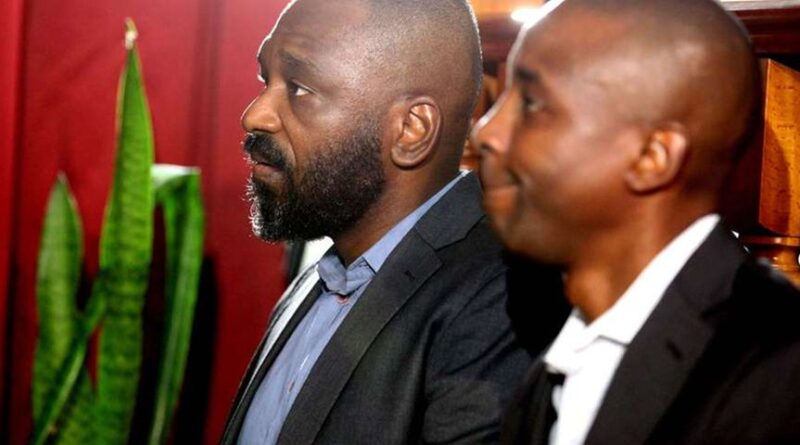Angola President’s anti-graft war bears fruit, but earns him enemies
Luanda. Angola’s Parliament is next Tuesday expected to debate whether a popular legislator should lose immunity and face court for his past corrupt dealings. It is a first for the country beating a new path in the graft war.
The country’s Supreme Court asked the legislature to waive immunity for Manuel Rabelais to see him lose the seat and be prosecuted.
The Angolan Constitution normally protects MPs, like diplomats abroad, granting them immunity against arrests or jail until the House or the Permanent Commission grants consent, and if the legislator commits grave crimes.
The Attorney-General would normally have to obtain a court request to force the MP to face court, be prosecuted and convicted.
But Rabelais is no ordinary man, even if he was not protected by immunity. A former President Eduardo Dos Santos aide, he served as mass Communication Minister 2006-2015 and was the ruling Popular Movement for the Liberation of Angola (MPLA) Information and Communication Secretary in 2017.
He was also the head of the former Office of marketing, administration and institutional communication revitalisation (Grecima) between 2016-2017. But the chips started to fall as the party was taken over by President João Lourenço.
Mr Rebelais is to be charged with embezzlement crimes, violation of budgetary procedures, and money laundering, among other crimes.
He was a co-owner of a TV and radio station which voluntarily handed to the State last week.
His predicament sort of characterises the regime of President João Lourenço. Since he took over in Angola in 2017, his pledge to fight corruption has borne fruit but earned him enemies right from within the party’s elites, including the former First Family.
Now Angola has improved 21 places on the Corruption Perception Index. Published annually by graft watchdog Transparency International, it shows that Angola was the most corrupt country in the SADC region, ranked at 167 out of 198 countries. It is now ranked 146 out of 198. That may still be awful for a country in dire need of governance reforms, but dos Santos’ final years had witnessed a drop of at least three places every year.
The election of the new President, nicknamed ‘JLO’, marked the end of President José Eduardo dos Santos’ 38-year reign which had left many poor despite Angola being the second biggest oil producer in Africa.
In 2017, President João Lourenço advised Angolans with fortunes stashed illegally abroad to repatriate their money and invest at home. He warned that the government would confiscate money from those defying the advice.
In 2018, the National Reserve Bank Governor, Mr José de Lima Massano, confirmed that over $30 billion belonging to Angola was deposited abroad illegally.
Seized assets
Last week, Angola’s Prosecutor’s Office said in a statement that prosecutors have seized assets belonging to two of former President José Eduardo dos Santos’ closest aides.
Assets, including a brewery and a vehicle assembly plant, shares in a sugar plant and supermarket chain, a cement factory and buildings and residences held by General Manuel Helder Vieira Dias Kopelipa, and Leopoldino do Nascimento Dino, were all taken.
General Kopelipa was President José Eduardo dos Santos’ head of presidential palace security between 1995 and 2017.
General Dino was dos Santos’ Head of Telecommunications for the Presidency between 1995 and 2010, adviser to the Minister of State and Head of the Intelligence Bureau in the Presidency from 2010 to 2018.
Angola, with a population of 30 million, a majority of them impoverished, and earn less than $2 per day, had its own party eating from the public coffers. Since 2017, however, the government announced it will diversify the economy and support agriculture and tourism.
Yet, according to a World Bank bulletin, the oil sector represents 97 per cent of Angola’s exportation and 80 per cent of public revenues and employs one per cent of the population.
A fortnight ago, in an interview with the Wall Street Journal, President João Lourenço said that based on the preliminary investigations carried out by the National Asset Recovery Service, Angola had lost $23.79 billion of public money to corruption.
“Of these amounts: $13.52 billion was withdrawn illegally through fraudulent contracts with the State-owned oil company Sonangol; $5.09 billion was withdrawn from government-run diamond companies Sodiam and Endiama; and the remaining $5.19 billion from other sectors and public companies”, he said in the interview.
Sonangol was once headed by the daughter of dos Santos, Isabel. Isabel, considered Africa’s richest woman by Forbes at $1.4 billion, was fired in 2017. Last year, Angola claimed she ripped off the country and froze all her assets in the country.
In March this year, a Portuguese judge ordered seizure of property she owns there as a result of corruption charges in Angola, which she disputes to date, calling it political witch-hunt.
Last week, President João Lourenço announced during his state-of-the-nation address in parliament that looted estimates exceed $24 billion over the last couple of years.
Studies from the Angolan Catholic Church University estimate that more than $80 billion was taken out of the country in the 2002-2014 period.
In response, the National Union for the Total Independence of Angola (Unita) president Adalberto Costa Júnior said that the oil strategic reserve alone has withdrawn more than $93 billion from the State. Unita is the main opposition party.
Mr Júnior also said President João Lourenço’s corruption fight was selective as other members of his party were not targeted.
SPurce: The Daily Nation

